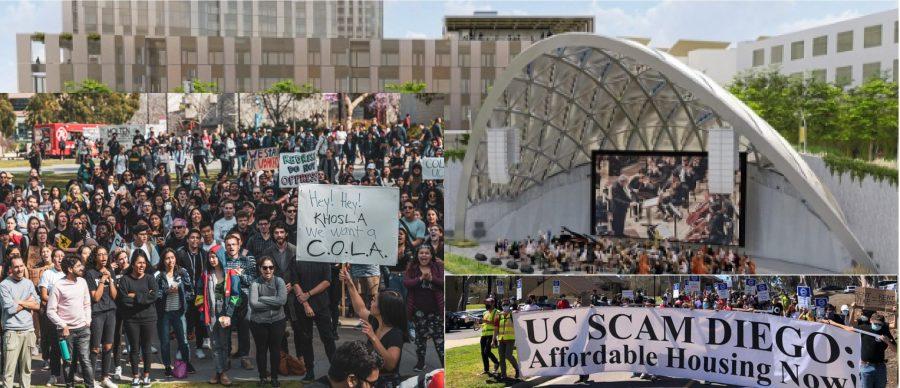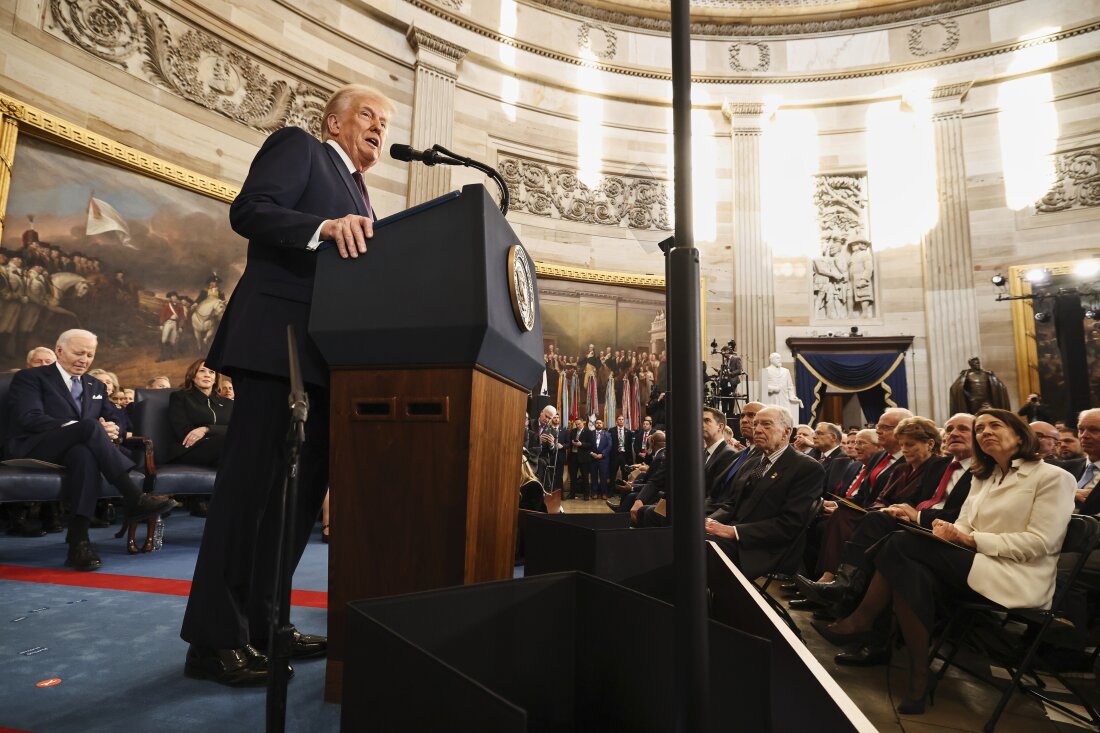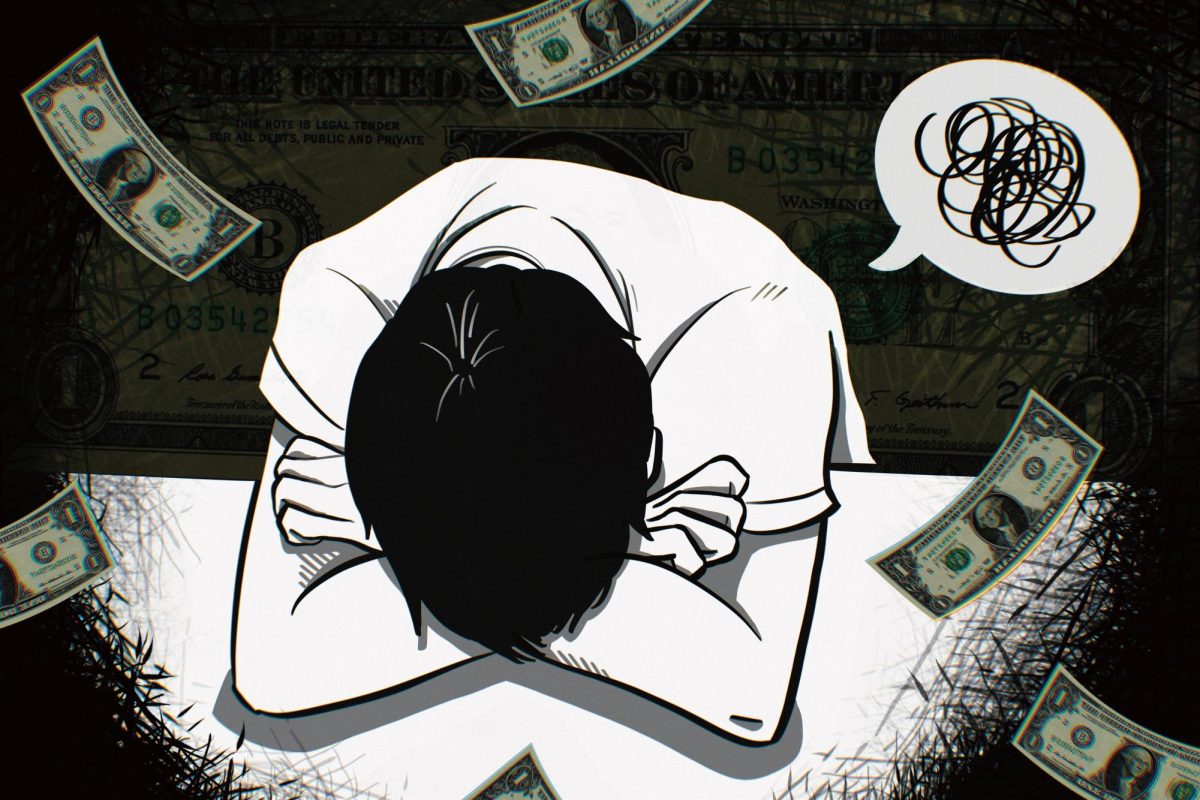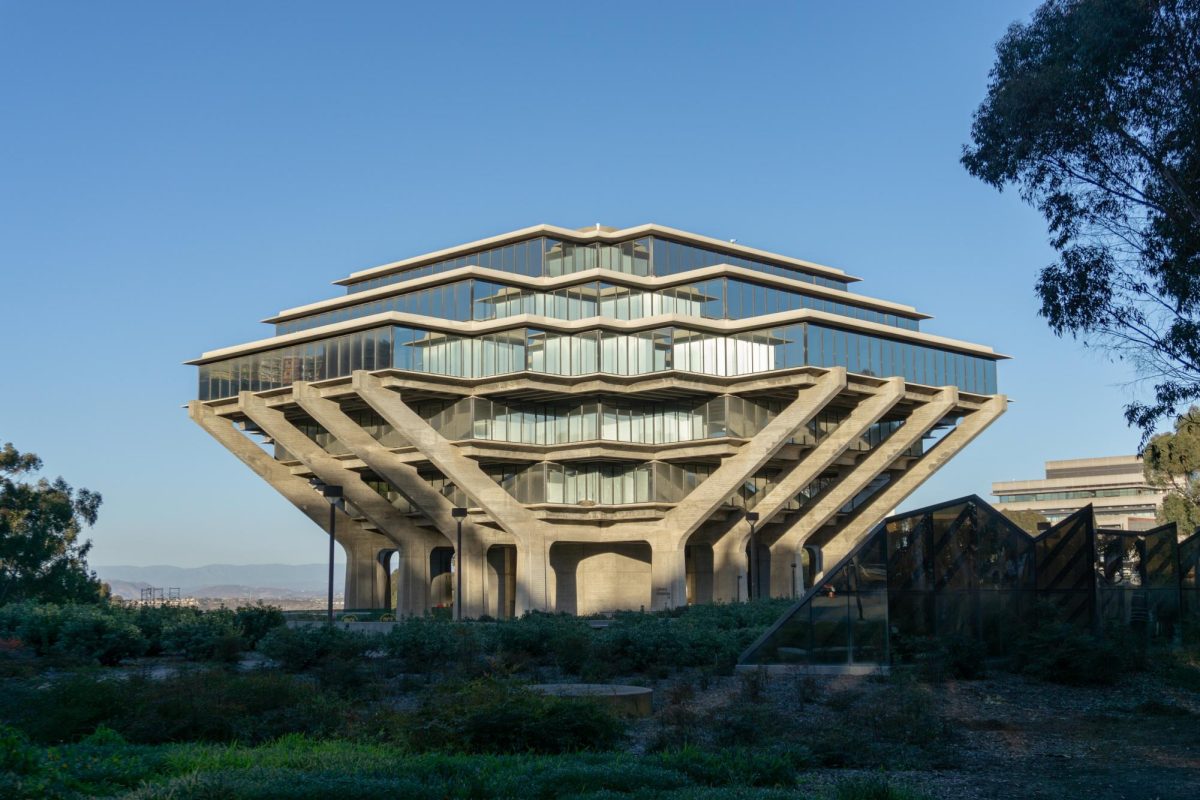This article is a guest submission from Avaneesh Narla, a Ph.D. candidate from the UCSD Physics Department.
Two weeks ago, I attended a concert by the San Diego Symphony at the new Epstein Family Amphitheatre on campus. The performances were terrific, and fortunately, my home’s proximity to the venue allowed me to attend. But most students and researchers don’t have access to attend such events as they have been priced out of housing in the University City area, and expensive projects, such as the Amphitheatre, should be revealed for what they truly are: vanity projects by administrators that are seeking to leave a legacy and mingle with local politicians. Students and researchers at UC San Diego don’t need white elephants — we need living wages and affordable housing. If administrators want to leave a legacy, I urge them, before it’s too late, to pursue living conditions for the researchers and educators that are working overtime to make UCSD a leading university, rather than flashy buildings that its own community cannot access.
The housing crisis in University City is well-documented and a constantly-lived struggle for most students and researchers at UCSD. Chancellor Pradeep K. Khosla cites market forces and the pandemic for such sharp increases in rent. But UCSD is the driving market force as it continues to increase enrollment rapidly, and pledging to keep housing 20% below market rate means nothing if the market rate is way beyond researchers’ ability to pay. Following UCSD’s logic, it should raise our wages as per market rates; however, their proposed wage increases in recent contract negotiations are nowhere near that. UCSD boasts that it has among the largest student housing inventory in the country, but who does this housing serve if it is not affordable? UCSD wants to increase on-campus housing by at least 10,000 beds by 2035, yet if it continues to grow at 4% as it has over the last decade, it will have added almost 30,000 more students by then.
UCSD states that it is also investing in off-campus housing for staff and faculty. However, UCSD recently acquired Framework Apartments — which are more than an hour’s commute from campus — but isn’t even attempting to keep them affordable. At Framework, UCSD is charging a minimum of $2,100 plus utilities for a 358 sq. ft. studio apartment. This is more than many student researchers at UCSD make (and perplexingly, the same as the market rate for a 650 sq. ft apartment in the adjoining complex). Further, the apartments are in a neighborhood with exploding homelessness rates due to the prevailing lack of affordable housing. I couldn’t find any data on responses to a survey conducted by UCSD to gauge interest in the project, but I fail to understand who would be able and interested in paying so much for such a small space so far from campus. Nonetheless, if UCSD believes that this is the appropriate price for barely-adequate housing along the trolley line, it believes that its researchers cannot afford to live along the trolley line.
UCSD states that it will use a $100 million grant from the Higher Education Student Housing Grant Program to lower rates up to 55% below market for 1,100 low-income California resident students. This is too little, too late. The inability of UCSD to commit to tying housing rates to the wages it pays its workers, even for a minuscule number of low-income Californians, is a testimony to its lack of commitment to housing, while it builds flashier buildings on campus. UCSD is concerned only with market rates because it does not care about affordability but about recovering funds from students and researchers to fund its unwarranted growth and vanity projects. Living near campus is now inaccessible to students from low-income backgrounds, resulting in lower participation in classes, student groups, and community events. This is a de-facto form of economic (and ethnic/racial) discrimination. Further, the lack of affordable housing near campus most impacts international students and researchers who do not have credit scores, bank accounts, or driver’s licenses when they arrive in this country and often live in cramped quarters far from campus. As a result, students and researchers who cannot afford to live in San Diego are not enrolling at UCSD. This is what will cause the loss of reputation and status that UCSD currently has, not the lack of fancier buildings on campus.
In negotiating our new employment contracts, academic workers have made concrete proposals to address housing insecurity at UCSD. But the university administration has continuously broken the law by circumventing the bargaining process, making unilateral changes, and refusing to bargain in good faith. These tactics are preventing us from reaching agreements for fair wages and working conditions. Last week, 35,655 academic workers (97.53% of those who voted, and 76% of the 48,000 eligible) across the UC voted to authorize our Bargaining Teams to call a strike; unless the UC negotiates fairly to ensure we can live and work with dignity, we will not work. On Thursday, the Bargaining Teams decided that circumstances, based on the pending unfair labor practice charges, justified strikes in each unit which will begin on Nov. 14. This strike will be historic, as it will include three of the largest unions in the UC, but none of us will be striking with pleasure. We love our research and teaching and want to continue doing so. But if UC won’t stop its unlawful conduct, we will have no choice.














ToiniVeitonen • Nov 12, 2022 at 7:18 am
First, shadows are the reflection of our existence in the space. Then, our shadows overlap, intertwine, communicate. In this project, shadows are turned into subjective via https://ladydahmer.com/ representations of our mind states. Instead of being distorted by the source of light, the audience will be able to control their own shadows by wearing the headsets that collect EEG data from them and accordingly form fake shadows projected onto the ground beside them.
Guest • Nov 8, 2022 at 5:02 pm
$10 out of $68 million of the theater’s cost was paid for by the Epstein family. $50 million on Framework apartments, and $50 million on a theater. UCSD’s priorities are fucked.